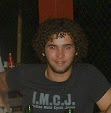Firing Line is a TV show from the US I discovered just a few days ago. It is always conducted by William F. Buckley, Jr. of whom it has been said to be "arguably the most important public intellectual in the United States in the past half-century…". The program is a talk show based upon the interview of top level intellectual figures from the US and abroad on different topics. It has the nice quality of being intellectually challenging while often dealing with highly polemic issues. See Hoover institution archives on Firing Line broadcasts for more features and details.
In particular, the interview with Prof. Thomas Sowell in 1981 (entitled "The economic lot of minorities") contains a profound debate supported with lots of data on race and gender discrimination, and how unemployment and low income rates relate to education in ethnic minorities and women.
I hope you reflect on these difficult points, which are still unresolved 36 years after this interview.
Here you have a list of some other episodes with prestigious guests:
In particular, the interview with Prof. Thomas Sowell in 1981 (entitled "The economic lot of minorities") contains a profound debate supported with lots of data on race and gender discrimination, and how unemployment and low income rates relate to education in ethnic minorities and women.
I hope you reflect on these difficult points, which are still unresolved 36 years after this interview.
Here you have a list of some other episodes with prestigious guests:
Truman Capote (1968) on "Capital punishment"
Eldridge Cleaver (1968) on "The Black Panthers"
Prof. Noam Chomsky (1969) on "Vietnam and the intellectuals"
Rev. Jesse Jackson (1971) on "Is America hospitable for the Negro?"
Prof. B.F. Skinner and Prof. Donald M. MacKay (1971) on "The case against Freedom"
Prof. B.F. Skinner and Prof. Donald M. MacKay (1971) on "The case against Freedom"
Jorge Luis Borges (1977) on "Borges: South America's titan"
Prof. Friedrich Hayek (1977) on "Is there a case for private property?"
Prof. Thomas Sowell (1983) on "The economics of politics and race"
Prof. Steven Pinker (1995) on "Should we regulate the use of words?"
Prof. Friedrich Hayek (1977) on "Is there a case for private property?"
Prof. Thomas Sowell (1983) on "The economics of politics and race"
Prof. Steven Pinker (1995) on "Should we regulate the use of words?"

Gabriel, you are great! Great start!
ReplyDeleteThank you, Claudia! I am anxiously waiting for your suggestions on... say "Of Beauty and Consolation", for example.
ReplyDelete